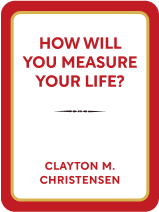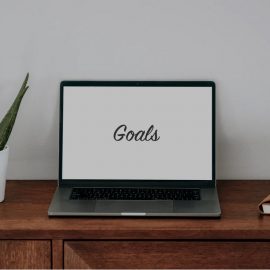

This article is an excerpt from the Shortform book guide to "How Will You Measure Your Life?" by Clayton M. Christensen. Shortform has the world's best summaries and analyses of books you should be reading.
Like this article? Sign up for a free trial here .
Do you struggle to find the time for both family and work? Do you want to achieve a healthy work-life balance? How can having a healthy work-life balance benefit your family?
A healthy work-life balance is something most people want to have. However, it can be difficult because of competing demands on your energy and time. In this article, we cover the consequences of prioritizing work and why you should invest in your relationships instead.
Find out why a healthy work-life balance is important.
The Importance of a Healthy Work-Life Balance
Your personal resources include your energy, time, talent, and wealth. You apply them to various enterprises in your life: your relationship with your spouse, parenting, relationships with others, succeeding in your career, health and personal interests, and contributing to your community. This makes it hard to achieve a balance between work and life.
All of these things compete for your attention, requiring countless daily allocation decisions—for instance, should you stay an extra hour at work because you have momentum on a project, or do something your family needs your help with?
You’ll allocate your resources unthinkingly unless you pay attention to your strategy and manage your resources accordingly. How you allocate them may make the difference between a life of fulfillment or one of frustration.
Much unhappiness stems from prioritizing short-term goals, such as a bonus, promotion, or upscale lifestyle, rather than long-term objectives, such as a good marriage and raising children to be good people. In trying to earn more to provide more for their families, some people neglect to spend time with them. In practice, they allocate diminishing resources to the things, like their relationships, which they say matter the most to them. They’re implementing a different strategy than the intended one. If the way you use your resources doesn’t reflect the person you want to be, you won’t be that person.
The Problem With Prioritizing Work
You might devote all your attention to a demanding job you enjoy, to the point that work becomes your identity. You skip vacation or work while on vacation, and you check your phone constantly. You expect family and friends to understand that your work takes precedence. You forget family members’ birthdays and neglect to return emails and calls from friends. As a result, you’ll experience the same consequences as a business does that fails to invest in the future—your relationships will erode and eventually fail. This is where you’ve failed to achieve a balance between work and life.
While your intended strategy may be to have strong relationships, the strategy you implement is one that creates shallow relationships and problems. When you don’t invest, you don’t get returns; you have to invest in your relationships well before you need them, like planting a tree long before you expect it to produce shade. In their later years, many people regret not keeping in touch with friends and family, who then aren’t there as they face struggles.
Many people over-invest in their careers at the expense of their families and relationships.
However, your career, by itself, won’t bring you happiness and fulfillment. Your career priorities are just part of a larger set of priorities, including your spouse, children, friends, faith, health, and so on. Work can be rewarding, but it doesn’t compare to the deep happiness you experience in relationships.This is why having a healthy work-life balance is crucial and you should aim to achieve a balance between work and life.
Like your career, your relationships need consistent attention. But two things work against this:
- You’re tempted to invest your resources where you see an immediate payoff; careers provide immediate rewards, while the payoff from investing in your relationships doesn’t show up until later.
- You pay less attention to friends and family because they’re less demanding than your boss. Because they love you and know your career is important to you, they want to be supportive. This can lull you into thinking things are going well at home and you can put your relationships on the back burner. You may not realize you have a relationship problem until it’s too late to fix it.
Ask Yourself These Questions
Where you apply your resources (time, talent, energy, money), intentionally or unintentionally, is your real strategy. It’s the accumulation of your daily decisions and actions. Follow the flow of your resources to determine whether you’re on track for where you say you want to go and whether you have a healthy work-life balance.
- List the main things or pursuits in your life that compete for your attention and resources. What percentage of your time and money do you allocate to each in a given day or week?
- How does this allocation align with your beliefs about what’s most important in your life?
- Is there anything you would like to change? Why or why not?
Use the above questions to work out if you have a healthy work-life balance, and what needs to change to achieve one.

———End of Preview———
Like what you just read? Read the rest of the world's best book summary and analysis of Clayton M. Christensen's "How Will You Measure Your Life?" at Shortform .
Here's what you'll find in our full How Will You Measure Your Life? summary :
- How economic theories that help businesses succeed can also help individuals make better life decisions
- How to build a career that makes you happy
- How to deepen your relationships with your spouse and children






